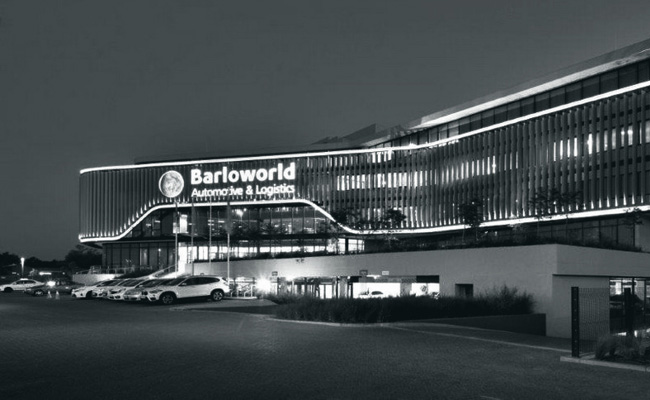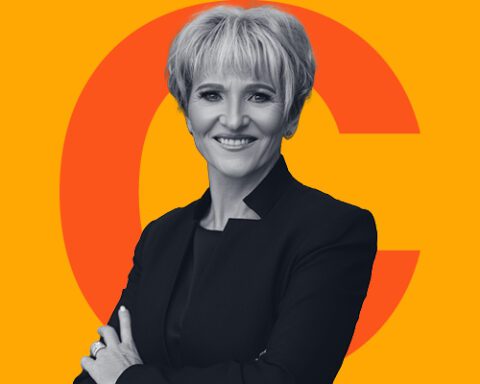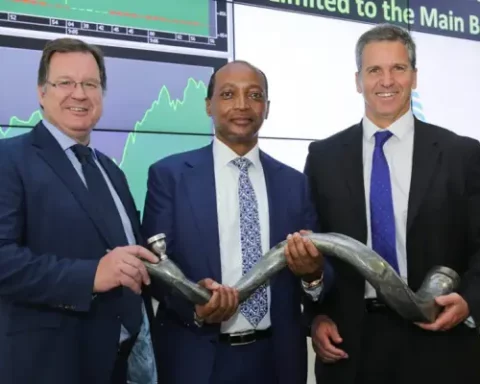AGMs are almost inevitably grim affairs.
The only escape from this tedium is the occasional presence of shareholders who brighten things up with a few questions. But if there are none there, the meeting grinds from reading out resolutions, to voting, to reading the results and then closing. All in all, a 20- to 30-minute affair.
That was the case at last week’s Barloworld AGM, which, even by the low standards of AGMs, was a particularly miserable affair.
There was one question asked, yet astoundingly, the board dismissed this as “not appropriate” as it related to the R23bn takeover bid from a consortium led by the Saudi Arabia-based Zahid group and CEO Dominic Sewela. This seemed churlish, as Barloworld’s future hinges on what happens with that deal.
Nonetheless, Barloworld chair Lulu Gwagwa proceeded to announce, perfunctorily, that all resolutions had been passed. The meeting was closed, 29 minutes after it started.
Yet there was something odd about Gwagwa’s tone. Usually, when a chair announces an AGM vote, he or she says by what percentage it was passed. Gwagwa ignored that convention.
Three hours later, it became apparent why.
Under cover of a tedious 29-minute AGM, South African corporate history had been made. Yes, all the resolutions had been passed, but only just, apart from acceptance of the annual financial statements, which received 99.95% support.
Remarkably, between 42.6% and 43.1% of shareholders voted against all the directors up for re-election; 22.43% voted against re-appointing the auditors; about 21% voted against the two remuneration votes; and 20.5% voted against each of the two special resolutions, one to approve financial assistance to related companies and a second for approval for share repurchases.
Those directors included Peter Schmid, Bashirat Odunewu, Nomavuso Mnxasana, and the election of Vuyisa Nkonyeni and Nicola Chiaranda to Barloworld’s audit committee.
This was an astounding vote of no-confidence in the leadership of a South African industrial bellwether. Barloworld, in its 123 years of existence and 84 years as a company listed on the JSE, has surely never suffered such an indignity.
As it is, the director-related resolutions were just 7%-8% shy of failing to make the 50% cut, and the special resolutions were a mere 4.5% away from not meeting the 75% requirement.
It is hard to see this as anything other than a stark admonition of a board of directors that has been heavily criticised for its lax oversight in allowing Sewela to remain on as CEO since February, while he simultaneously negotiated a takeover of that company on behalf of his consortium.
As Asief Mohamed, chief investment officer of Aeon Investment Management, told Currency when the controversy first reared its head, “the board should have insisted the CEO step aside, appointing an interim, unconflicted CEO – the significant delay in announcing the transaction details exacerbated the CEO’s untenable conflict of interest”.
PIC in the spotlight
It may have seemed perfunctory, but Barloworld’s AGM represented an unprecedented level of shareholder activism. And this investor opprobrium has to be seen in the context of the bubbling controversy surrounding the consortium’s bid.
Barloworld did not reveal which shareholders voted against the proposals. But Richard Cheesman of Urquhart Partners reckons the state-owned Public Investment Corporation (PIC) and UK-based Silchester International Investors both voted against the directors’ re-election.
“About 70-million shares voted against the directors,” Cheesman tells Currency. “That looks close to the combined number of shares held by the PIC and Silchester.”
Silchester, the only shareholder to publicly reject the R120 a share that Barloworld shareholders were offered by the Zahid-led consortium, said in early February that it would vote against most of the resolutions presented to the AGM.
The group owns 17.7% of Barloworld, and said it would not give up its shares for less than R130.
The PIC, which did not immediately respond to a request for comment on the AGM, owns 18.1% of Barloworld at last count. But it has not said yet whether it supports the offer.
But tellingly, in an earlier response to questions from Currency about the deal, a spokesperson for the PIC said: “The board of Barloworld has a fiduciary duty to ensure that appropriate corporate governance standards are maintained, and it must act in the best interest of the company and shareholders.”
The PIC said that in the interests of sound governance, it will “vote to express its position on the proposed transaction and other resolutions, at the upcoming AGM”.
Well, that vote is now in – and if anyone at Barloworld is listening, it ought to be a chastening moment for much introspection.
Cheesman says that without making any assumption on whether or not the PIC will back the transaction, the AGM result is indicative of the consortium being unable to get the necessary support from 75% of the shares entitled to vote on the proposed scheme. This means the consortium will likely have to fall back on its standby offer.
There is a 90%-plus acceptance requirement for the standby offer, but that can be waived and the consortium can accept whatever number of shares it is offered. However, the consortium will need to get at least 90% acceptance if it wants to delist Barloworld.
The problem for Sewela and the Saudi group is that Silchester has already said it will not support the standby offer at R120, which means a delisting is not on the cards right now.
Rethinking the Russia discount
Even if Zahid and Sewela want to make another offer, they will have to wait 12 months before they’d be legally allowed to do that under the takeover code.
By then, Barloworld’s prospects may be such that the R120 price offered would seem like a steal.
This is partly because Barloworld’s stock has been subjected to a “Russia discount” since September, when the company said its Russian arm was being investigated by the US for possible “export control violations”. Since then, US President Donald Trump has been cosying up to Russia, which suggests that discount may soon vanish.
And if that happens, it’ll be much harder for the consortium to ignore demands for a higher price.
Barloworld’s board is probably hoping it doesn’t get to that. The eye-opening shareholder revolt at last week’s AGM suggests widespread anger with how the board has done its job. If the bid fails, it might not be around for too long.
Silchester, in rejecting the takeover offer, said Barloworld had a promising future, provided it had “new management, a reasonable board of directors, and proper capital allocation”. It seems it’s not the only one that thinks so.
Sign up to Currency’s weekly newsletters to receive your own bulletin of weekday news and weekend treats. Register here.









